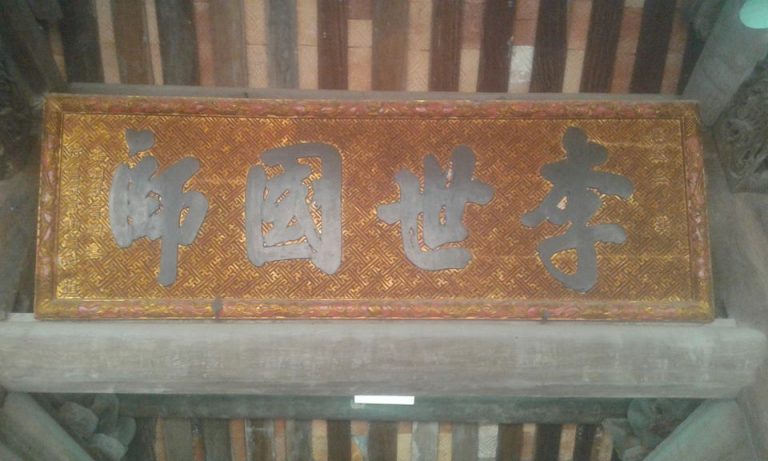Nguyen Huu Cuong was born in the year At Mao (1855), during the 8th reign year of Emperor Tu Duc. He was the eldest son of Nguyen Mau Kien, a magistrate from Dong Trung village, Kien Xuong prefecture (now Vu Trung commune, Kien Xuong district).
As a child, he displayed remarkable intelligence and a strong passion for learning. Under his father’s dedicated guidance, Nguyen Huu Cuong mastered classical Chinese literature at an early age. His family had a longstanding tradition of scholarly excellence. His grandfather, Nguyen Dang Thuat, had hired woodblock engravers from Hai Duong to print books, and his father, Nguyen Mau Kien, further expanded the family’s publishing house, Chiem Bai Duong, which produced many valuable works such as Ngu Kinh Kham Dinh and Ngu Tu Can Tu Luc.
Before the First French Conquest of Bac Ky in 1873, Nguyen Huu Cuong and his father continued the legacy of Nguyen Cong Tru by reclaiming land in Tien Chau (modern-day Tien Hai). They established new villages, encouraged settlers, and developed irrigation systems, contributing to the region’s agricultural prosperity.
In 1874, after the Nguyen dynasty signed a peace treaty with the French, Nguyen Mau Kien, along with other patriotic scholars, strongly opposed the concessions made to the colonial forces. He resigned from office and returned home to teach. He revitalized Chiem Bai Duong, created the Hoc Dien fund to support education, and expanded commercial networks in Dong Xam, Co Rong, and Tri Lai.
In 1879, Nguyen Mau Kien joined Nguyen Quang Bich in the resistance against the French but succumbed to malaria and passed away at Don Vang (now Thanh Son, Phu Tho) at the age of 61.
Determined to avenge his father and defend the nation, Nguyen Huu Cuong and his brother, Nguyen Huu Ban, recruited militia forces. They fortified Dong Trung village with bamboo palisades and trenches, forming a defensive alliance with Doan Khue at Dong Vinh (now Vu Vinh, Vu Thu).
In 1883, as the French attacked Nam Dinh Citadel, Nguyen Huu Cuong and Nguyen Huu Ban provided logistical support to the defenders, including Nguyen Doan Cu of Keo village and Pham Xuan Chieu of Hoang Xa. The battle on March 27, 1883, was intense, with many patriotic fighters falling, including Nguyen Huu Ban. Despite their heroic resistance, the citadel was lost.
After the fall of Nam Dinh, Nguyen Huu Cuong continued the resistance in Kien Xuong. Following Emperor Ham Nghi’s Can Vuong edict in 1885, he collaborated with Nguyen Quang Bich, Tong Duy Tan, and Phan Dinh Phung.
After decades of resisting French rule, Nguyen Huu Cuong was eventually arrested and exiled to Can Tho, where he passed away on May 12, 1912.
At Keo Pagoda, he left a lasting legacy with his calligraphy, particularly the “Ly The Quoc Su” inscription at the Gia Roi hall, which remains a historical artifact honoring his martial and literary prowess.
!["[KTMH] Trailer | WHAT TO DO TO MAKE SUMMER HOLIDAYS MORE MEANINGFUL?"](https://i3.ytimg.com/vi/s0VUGa1v6uw/maxresdefault.jpg)

.jpg)

.jpg)